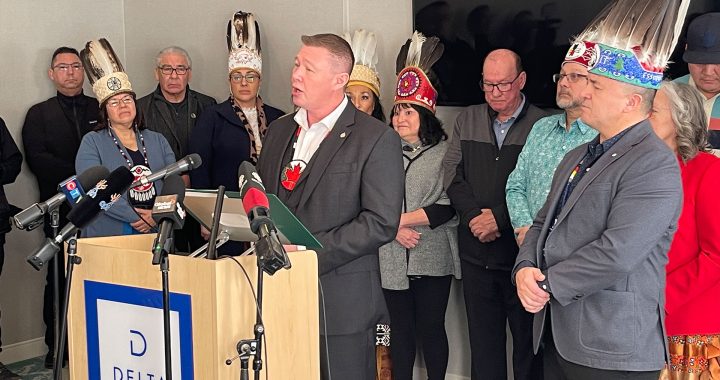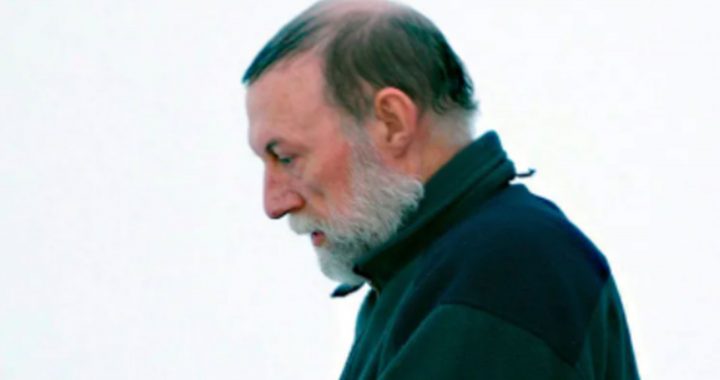Indigenous groups and environmentalists are reacting to an executive order enacted by President Donald Trump that could propel oil and gas development in a sensitive part of an Alaskan wilderness refuge.
Trump signed a slew of executive orders during his first official day in office on Monday including one targeted towards “unleashing” Alaska’s resource potential.
Trump’s new policy could have major implications for the Arctic National Wildlife Refuge and the Gwich’in in Alaska and northern Canada.
“I think we’re all feeling stressed,” Chief Pauline Frost of the Vuntut Gwitchin in northern Yukon told APTN News.
The 19.6 million-acre refuge is located in northeast Alaska and is home to polar bears, wolves, wolverines, foxes and migratory birds.
Its untouched ecosystem is considered by many to be one the last truly wild places on earth.
Nestled within the refuge is coastal plain, a 1.5 million-acre area bordering the Beaufort Sea which acts as nursery grounds for the Porcupine caribou herd. Its a place the Gwich’in consider sacred.
Despite a decades-long fight by the Gwich’in and environmental groups, the plain is not permanently protected from oil and gas development.
Frost said any drilling within the refuge will disrupt the herd and ultimately her people’s way of life.
“That will change drastically if we don’t have caribou, because we are caribou people,” she said.
The new policy includes rolling back Biden-era environmental protections for the refuge, like reinstating drilling leases within the refuge which were cancelled by the Biden administration in 2023.
It states tapping into the state’s natural resources, including energy, minerals and timber, will boost the economy and create high-quality jobs, among other things.
The order follows campaign promises made by Trump to boost Alaska’s oil and gas sector as he seeks to cement the U.S. as a global energy leader.
But Frost views the policy as a violation of her people’s rights.
“It’s really rooted in our human rights as a nation to live and sustain our way of life, our connection to the land,” she said. “We have to really honor our fundamental relationship with the land and the caribou. We have to protect that at all costs.”
Drilling in refuge ‘bad business’
Environmental groups have long stood behind the Gwich’in and their fight to permanently protect the coastal plain.
Meda DeWitt, Alaska senior manager for the Wilderness Society, said the order is not only destructive, but misguided.
“What people don’t realize is even if they do start to do work, it would take 10 years before we even saw any of the fruition of that work,” she said. “The person-power that it’s going to take to do that work isn’t in place with the president’s cabinet and deputies at this point in time. It will take quite a while if it can get anything up off the ground.”
She also noted oil and gas companies have made little effort to drill within the refuge in recent years.
A federally mandated lease during the last days of Trump’s first presidency in January 2021 received few bids, all but two of which came from an Alaskan state development agency.
Those leases were later cancelled by the bidders themselves or by the Biden administration.
A second sale held earlier this month received no bids at all.
“Insurance companies internationally have pulled out. Banks don’t want to support it. It’s just bad business,” she said.
Iñupiat looking forward to new administration
But Iñupiat communities on Alaska’s Northern Slope say drilling in the refuge is key to maintaining their local economy.
The North Slope is the United States’ northernmost municipal government. The borough was formally incorporated in 1972 after the discovery of oil at Prudhoe Bay, the largest single oil field in North America.
“We’re looking forward to an opportunity to see the coastal plain opened, cautiously optimistic that we can come to some sort of usability of that region,” said Nagruk Harcharek, president of Voice of Arctic Iñupiat (VOICE), a non-profit that represents the North Slope Iñupiat. The organization supports responsible drilling within the refuge.
Prior to the creation of the borough, Iñupiat communities had limited educational and employment opportunities and lacked basic infrastructure like running water.
But Harcharek said the Prudhoe discovery helped change things for the better.
The Iñupiat now benefit from tax levies on Prudhoe’s infrastructure, money that is reinvested into local communities and helps funds schools, hospitals and roads.
“It’s more money for the North Slope borough. It’s maintaining the services that they already provide,” Harcharek said. “All of these things that we’re able to provide for our own communities through that tax base is hugely important to us.”
Harcharek is hopeful the new administration will help foster meaningful consultation with the Iñupiat.
He said the Iñupiat are largely left out of discussions when it comes to drilling in the refuge. He noted Kaktovik, the only community located within the refuge, was never properly consulted on the issue by the Biden administration.
“They’re feeling forgotten because nobody ever mentions them, and they are the closest and rely on a lot of the same animals that are relied on by the communities to the south,” he said. “A lot of our efforts have been to elevate the voices of not just the North Slope region as a whole, but also specifically the voices of the folks that are in Kaktovik.”
Trump also declared a national energy emergency during his inauguration address.
The declaration criticizes the U.S.’s current energy infrastructure while also calling for increased oil and gas drilling.










